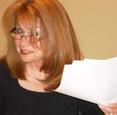We’ve all gone through it – the dreaded plateau. We’ve been dieting and exercising for weeks, maybe months, and been exhilarated by our initial weight loss and energy surge. And then - nothing. No movement on the scale and we start to feel like failures. We must be doing something wrong. We should continue to be losing weight, we think, if our “calories in” (what we eat) continue to be less than our “calories out” (what we expend through exercise and just living our lives).
Conventional wisdom and those who promote it tell us to eat a little less, or eat different foods, or exercise a little more, or find different ways to exercise. So we do a combination of the above, feel gratified that the scale starts to move in the right direction – and then it happens again. Plateau #2 or #22. At some point most of us, already feeling like failures, just quit.
There’s another explanation for our inability to shed unwanted pounds and that’s the concept of Set Point. Set Point theory tells us that our bodies have a weight range (usually 5 – 10 pounds) in which they feel comfortable, based on our genetics and lifestyle factors such as the amount we regularly exercise, how physically demanding our jobs are, and the nutritional quality of the foods we eat. When we try to manipulate our caloric intake and expenditure below our comfortable range, our bodies will rebel. They will perceive the decrease of calories as famine, the same way our cave dweller ancestors perceived the times when food was in short supply. They will rebel by slowing down and burning fewer calories. No wonder we stop losing weight. Oh no, we say. But I want to be thinner and sexier! So our minds tell us to try a new diet and our bodies continue to keep us in our set point range or at our natural weight.
I had this “ah ha” moment the other day, that at sixty-four years old, I weigh five pounds less than I did when I graduated from high school at seventeen. My set point? Maybe. At seventeen, however, I thought I was fat and unlovable. Years of cultural and family messages created the recipe for those beliefs, leading to decades of “yo-yo” dieting, from highly restrictive eating to compulsive overeating behaviors. At sixty-four, however, I now see myself as a healthy and yes, pretty woman, with curves, a great smile, and so much love and wisdom to offer my family, my friends, my clients, and my community. I feel so bad for what I put myself through at those other stages of my life. The obese little girl, the sneak-eating adolescent, the young adult who firmly believed that the ticket to love was only bought by a thin and toned body.
In all of those life-stage iterations of me, I was wrong! The only way to true, long-lasting happiness is through self-love, self-care, and body acceptance. Is it an on-going challenge for those of us who naturally do not fit into the socio-cultural ideal of beauty? Absolutely yes! However, the negative physical and emotional health consequences of not doing so are far too great. We can continue the diet/ weight gain cycle that leads to increased stress, negative self-worth, and inflammation in our blood vessels or we can examine our current health habits. Are we giving ourselves appropriate amounts of restorative sleep, nutritious food choices that fuel our bodies, regular amounts of aerobic and weight bearing exercise? And then, can we accept, can we embrace that where our bodies land, with those health habits in place routinely, is where our bodies are meant to be? At our set point? At our natural weight?
With the skyrocketing rise in life-threatening eating disorders in females and males, are we ready, as a society, for a paradigm shift? I certainly hope so!
Ilene Leshinsky is a licensed, clinical social worker with fifteen years of counseling experience. In her Plattsburgh based private practice, she works with women who want more joy and fulfillment in their lives. Ilene’s BodySense program is open to women of all ages who are in conflict with weight, eating, and body image. She can be reached at 518-570-6164, ilene@primelink1.net, or www.ileneleshinsky.com.

Post new comment
Please Register or Login to post new comment.